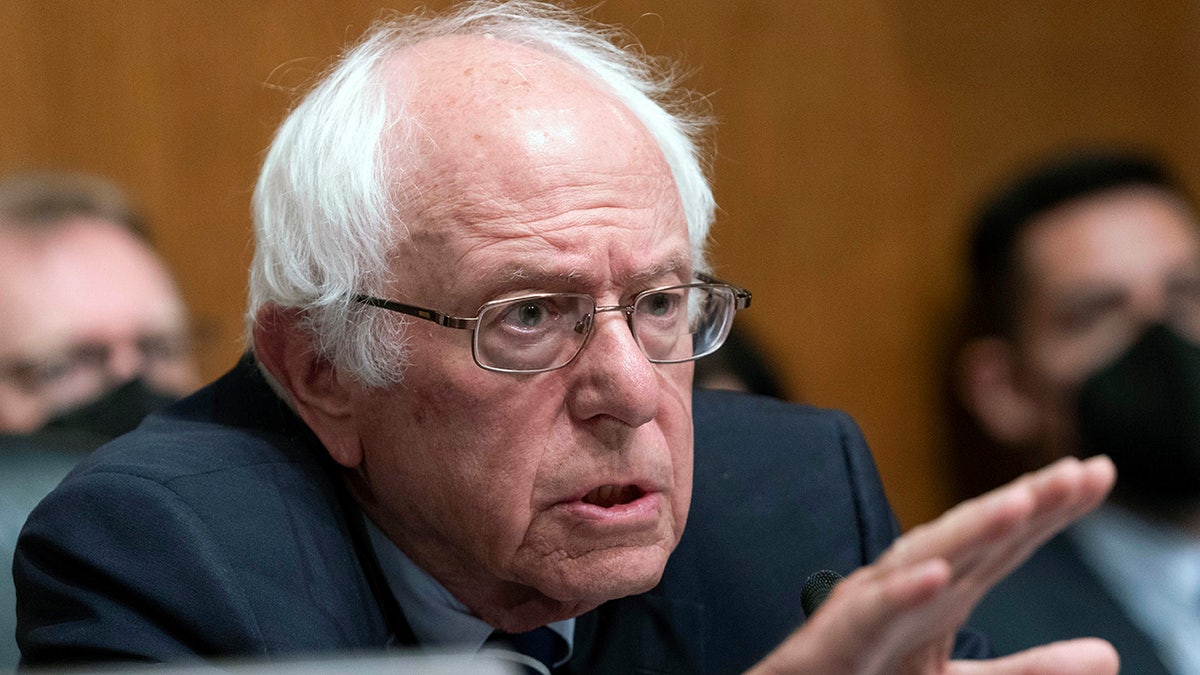
Sen. Bernie Sanders, I-Vt., announced this week he plans to hold a vote on Jan. 31 to subpoena the CEOs of two big Pharma companies for a hearing on drug pricing in front of the Health, Education Labor & Pensions (HELP) Committee after they refused to testify last year.
The subpoenas for Johnson & Johnson CEO Joaquin Duato and Merck CEO Robert Davis would have them testify about why their costs for medicine are ‘substantially higher’ compared to other countries, the announcement said.
But some executives see the pending subpoenas as a form of retaliation for a court battle over Medicare price negotiations.
‘It is absolutely unacceptable that the CEOs of Johnson & Johnson and Merck have refused an invitation by a majority of members on the HELP Committee to appear before Congress about the outrageously high price of prescription drugs,’ Sanders said. ‘These CEOs may make tens of millions of dollars in compensation. The pharmaceutical companies they run may make billions in profits.’
In November, Sanders requested Duato and Davis for testimonies on drug pricing, but they insisted that a ‘senior pharmaceutical executive best positioned to address and provide Johnson & Johnson’s position regarding the issues’ should instead appear, according to a letter Johnson & Johnson attorney Brian D. Smith sent to Sanders this week in response to the subpoena announcement.
‘Johnson & Johnson offered to make available for the hearing the senior pharmaceutical executive best positioned to address and provide Johnson & Johnson’s position regarding the issues posed in your invitation letter,’ Smith wrote. ‘Throughout these discussions, Johnson & Johnson has also made clear its concerns with the direction the Committee is taking with the hearing, including the reasons that the company’s chief executive is not the appropriate witness for this hearing. We appreciate the opportunity to reiterate the concerns that we have previously conveyed to your staff over the past three months, and we urge you to consider permitting the Committee to hear from the appropriate executive for these topics.’
The two Pharma companies, alongside others, are currently suing to freeze Medicare drug price negotiation under Biden’s Inflation Reduction Act. Merck Executive Vice President Jennifer Zachary also sent a letter to Sanders this week suggesting the request to have the CEOs testify in front of the Senate panel is a form of ‘retaliation’ for the ongoing lawsuit.
‘We appreciate that many Committee members have expressed their disagreement with our lawsuit, and we respect their good-faith views. That said, your public criticisms of the Companies for challenging the IRA and comments regarding hearing witnesses indicate that the invitations to testify have been extended as retaliation for the Companies’ exercise of their constitutional right to seek relief in court,’ Zachary wrote.
Joe Grogan, who served as a domestic policy advisor to former President Trump, told Fox News Digital in an interview that ‘CEOs are not the subject matter experts in the company who can explain all the different aspects of the pharmaceutical supply chain’ and negotiations with other governments.
‘To put a fine point on it, it’s completely un-American,’ Grogan said. ‘I mean, these companies have every right to avail themselves of the courts, they have every right to sue and to be for him to target these three companies is not a coincidence.’

Sen. Bernie Sanders, I-Vt., announced this week he plans to hold a vote on Jan. 31 to subpoena the CEOs of two big Pharma companies for a hearing on drug pricing in front of the Health, Education Labor & Pensions (HELP) Committee after they refused to testify last year.
The subpoenas for Johnson & Johnson CEO Joaquin Duato and Merck CEO Robert Davis would have them testify about why their costs for medicine are ‘substantially higher’ compared to other countries, the announcement said.
But some executives see the pending subpoenas as a form of retaliation for a court battle over Medicare price negotiations.
‘It is absolutely unacceptable that the CEOs of Johnson & Johnson and Merck have refused an invitation by a majority of members on the HELP Committee to appear before Congress about the outrageously high price of prescription drugs,’ Sanders said. ‘These CEOs may make tens of millions of dollars in compensation. The pharmaceutical companies they run may make billions in profits.’
In November, Sanders requested Duato and Davis for testimonies on drug pricing, but they insisted that a ‘senior pharmaceutical executive best positioned to address and provide Johnson & Johnson’s position regarding the issues’ should instead appear, according to a letter Johnson & Johnson attorney Brian D. Smith sent to Sanders this week in response to the subpoena announcement.
‘Johnson & Johnson offered to make available for the hearing the senior pharmaceutical executive best positioned to address and provide Johnson & Johnson’s position regarding the issues posed in your invitation letter,’ Smith wrote. ‘Throughout these discussions, Johnson & Johnson has also made clear its concerns with the direction the Committee is taking with the hearing, including the reasons that the company’s chief executive is not the appropriate witness for this hearing. We appreciate the opportunity to reiterate the concerns that we have previously conveyed to your staff over the past three months, and we urge you to consider permitting the Committee to hear from the appropriate executive for these topics.’
The two Pharma companies, alongside others, are currently suing to freeze Medicare drug price negotiation under Biden’s Inflation Reduction Act. Merck Executive Vice President Jennifer Zachary also sent a letter to Sanders this week suggesting the request to have the CEOs testify in front of the Senate panel is a form of ‘retaliation’ for the ongoing lawsuit.
‘We appreciate that many Committee members have expressed their disagreement with our lawsuit, and we respect their good-faith views. That said, your public criticisms of the Companies for challenging the IRA and comments regarding hearing witnesses indicate that the invitations to testify have been extended as retaliation for the Companies’ exercise of their constitutional right to seek relief in court,’ Zachary wrote.
Joe Grogan, who served as a domestic policy advisor to former President Trump, told Fox News Digital in an interview that ‘CEOs are not the subject matter experts in the company who can explain all the different aspects of the pharmaceutical supply chain’ and negotiations with other governments.
‘To put a fine point on it, it’s completely un-American,’ Grogan said. ‘I mean, these companies have every right to avail themselves of the courts, they have every right to sue and to be for him to target these three companies is not a coincidence.’














